Project Description
Interview with
RICHIE KOTZEN
.
.
Guitar virtuoso, songwriter, multi-instrumentalist and vocalist Richie Kotzen has lead an incredible career since the release of his debut album in 1989. Having made a name for himself as a solo artist in the heavy metal scene through a series of increasingly inspiring releases he was then recruited to join 80’s hair metal giants Poison, replacing CC Deville and recording the 1993 album Native Tongue and forging a new sound for the band.
He’s also served as guitarist for Mr Big, created supergroup The Winery Dogs with former Dream Theatre drummer Mike Portnoy and Mr Big bassist Billy Sheehan, but it his his journey as a solo artist that has always remained at the forefront of his career. Now Richie is returning to Australia not only to promote his latest album Salting Earth but also to make a very special appearance at the Sydney Guitar Festival.
Richie took some time out to chat with me about the creative process behind his music, his style and tone of playing and some of the artists who’ve inspired him along the way.
.
.
Hi Richie, how are you?
I’m great man, thanks for calling.
.
So you’re returning to Australia to promote your new album Salting Earth and again it’s an album you played every instrument on. Is this something you just feel like you have to do to have control over every facet of the project or something you do just because you can?
It’s more just the way it’s come together really. I mean I’ve done records in the past where I’ve done it this way but I’ve also done records where I’ve had other musicians playing with me. So it really comes down to how the songs are conceived and what typically happens with me over the course of a year or so is that I get these ideas for songs formulated and I’ll either record them right away, or record pieces of them and go back to them later. With this record in particular what happened was before I knew it everything was done and I was the guy playing on it. So it’s certainly not something that’s exclusive, it just happens to go down like this and obviously several other records I’ve done it this way. But it’s not a rule, and I’m always open to working with other people and have done so before, but with this record it’s kind of how it ended up.
.
There’s a lot of different styles on the album too, everything from some searing rock tunes to acoustic as well. Do you feel that it’s important to you to create such a rich tapestry of sounds on an album?
I think that just happens by instinct you know? And I think it’s kind of common with solo artists too because you write what you write. You have ideas and you make choices that are appropriate for each composition, so it kind of comes together by nature of what you write. It’s definitely not planned; I’m never thinking about what kind of song I’m going to write I’m only thinking about what I actually wrote and what the best way for me to record it is.
.
You’ve said that touring and playing live is where your heart truly lies. Speaking as a guitarist who’s also had some years of live and studio experience just what is it you love so much about the live format?
It’s just great. And it’s especially great playing in front of people who know the music and want to hear it. But I also really love the actual creative process. I love the whole notion of having an idea and bringing it to fruition and recording it. And without that you don’t have the songs to play live! So I love the creative process and composition as well and recording it and then at that point you shift gears and start thinking about how to bring it to life.
.
One thing I’ve always admired about your songs is purity of tone. It’s something that all guitarists continually search for, but you seem to have hit upon a magic formula. Care to share any secrets with me about how you achieve such an amazing guitar sound?
It’s really just choices that I make that are directly related to the composition once again. I hate to keep talking about the same thing but when you write something you typically have a vision in your mind, for me often times I can hear the song finished in my head and then it’s about making the choices to get what I’m hearing in my head through the speakers, and it’s really that simple. And if I’m hearing a particular sound I have to think about what I have to use to get that particular sound, but in the end it all comes back to composition once again and those choices you make to bring that to life.
.
.
The less is more approach right? I mean there are so many pedals and effects out there on the market now. I see musicians all the time who have these massive pedal boards and just don’t know how to use them. They hit everything on all at once and don’t understand why their tone sounds awful.
And that’s it. Keeping things simple allows the player and the person to shine through. And when you think about all the musicians that we talk about and that we grew up listening to, you’re hearing the musician. You’re hearing their hands and their interpretation, and effects are like a bit of flavour. So sometimes you might want a bit of flanger or a tremolo, but when you think about all the guys we talk about that are popular and that influence people you’re really hearing the person. And the mistake that can be made is masking yourself in the process. And so yeah keeping things simple is sometimes much more effective.
.
Several years ago now you decided to stop using a traditional guitar pick and instead started using your fingers. What inspired you to take that step?
Yeah that happened during a tour. I was disenchanted with my playing and uninspired and I wanted to do something that forced me into a different direction. And the only thing I could think of to do was to play an entire show without my guitar pick. Now I’ve done many finger style things in the past as individual songs but I’ve never attempted to do an entire set that way. And so when I did that I suddenly started to feel more connected to the instrument, I started opening up new doors as far as things that I could play. And so it just kind of evolved that way and I’ve just stuck with it.
.
There’s obviously some amazingly technical guitarists who’ve always opted for that approach, from Mark Knofler to Lindsay Buckingham – who’s one of my favourite guitarists – so were there any artists who inspired you to adopt the finger style?
No there wasn’t so much one person per se, it was really more just feeling the disconnect and thinking to myself “how can I fix this?”. And I knew I wasn’t going to be able to practice one night in my hotel room and reinvent myself and so I thought “what if I subtract something? What if I do my set without a guitar pick and see what happens?” And all of a sudden I found myself playing and feeling more connected you know? And I lost a lot of techniques that night too. I couldn’t do alternate picking or sweep picking but I opened up so many other things. And now over time I’ve relearned how to do some of those other things that I lost and everything’s kind of come together and I’ve advanced as well because I’ve found a lot of things that I can only do with my fingers, so it actually worked out very well.
.
You’ve been heavily influenced throughout your career by a number of incredible guitarists, including the late Allan Holdsworth who we sadly lost in April. Was his style of jazz and jazz fusion as big an influence on your playing as some of the more traditional ones like Hendrix and Stevie Ray Vaughn?
Allan was definitely an influence on me as a teenager and I remember being at that time very inspired by Eddie Van Halen. And then I read and interview with him and he was talking about Holdsworth and so I bought a couple of records and listened to them. I had two of Allan’s records back then, one was Metal Fatigue and the other was I.O.U and I listened to those two records and was trying to figure out what he was doing, although I didn’t get too deep into it. It’s interesting in that with me I never had a guitar player that I tried to copy, I was always more about listening to everything and certain things inadvertently inspired me. I was never very good at learning things note for note I was always much better at reinterpreting and then kind of doing my own thing. And I think that’s really how I ended up with my own style.
.
You’ve worked with some pretty incredible artists over the course of your career, from Mr Big to Poison and obviously with Mike Portnoy and Billy Sheehan in the Winery Dogs. Do you still enjoy collaborating with artists like this outside of what has been so far a hugely prolific solo career?
I really do you know? It’s a nice balance. Obviously the core of what I do is writing my own songs and recording them and playing them, but you know when you have a connection and collaborate and get to do something really special that’s an amazing feeling as well. And I’ve done many co writes with people, people that aren’t really that well known but who I’ve connected with, and that opens up a lot of doors for growth and expansion. So it’s important when you think about being a musician that playing with other people and being able to respond to that and take the good with the bad and all that, and sometimes it may or may not work as a collaboration, but when it does work it’s a very special connection.
.
.
Personally I still rank your playing on Native Tongue as some of your finest…
Thank you man!
.
I was chatting with Mike Portnoy a couple of months ago ahead of his Shattered Fortress tour of Australia and he’s said he’s got a pretty busy 2018 already mapped out. Given that Winery Dogs are set to release a pretty stellar live DVD have you guys got any plans to head back into the studio at some stage?
We don’t have plans on deck at moment but I’m sure we will at some stage. The band had so much fun working together and we made two very special records so with a band situation and especially with guys like Billy, Mike and myself where we all have had a life before the band there’s other things that we all want to do. So we have the flexibility to make a record and do a tour and then go back to doing what we were doing originally, and then come back and do another record and a tour. So I think the unofficial plan is to finish out the year and then see what we’re all doing. And hopefully sometime late next year we’ll get together and see if we have anything special that we can release.
.
Guitar playing and music in general is certainly a soul-searching journey and one you’re so obviously deeply rooted in. Having said that are there any styles of music you listen to that you’re yet to immerse yourself in?
Oddly enough I don’t really find myself listening to a lot of music in my free time. And when I do it’s usually a situation of I’m at the house and there’s a bunch of people and a barbecue and so I tend to put on the stuff that I grew up with. I’ll listen to Curtis Mayfield or Hall and Oates, Stevie Wonder or that sort of thing. So I tend to go back to all the artists that inspired me when I was young. But then at the same time I’m always hearing new things. I’ll hear a song on the radio and I may not always know the name of the band or the song but I’ll hear it and I know that there’s still great music being made out there by young people.
.
For most of your career you’ve pretty much used Strats and Teles. As a fan of both just what is it about them both that you love so much?
For me the Telecaster is really the most transparent instrument. And if you look at guitar players it really crosses all styles. From country to jazz, rock, blues and heavy metal. There are guys who play heavy metal with Telecasters modded out with Humbuckers. But it’s just a really solid and transparent instrument and it allows the sound of the guitarist to shine through. The Strat is a little different in that it has a more distinct sound, but it’s also very expressive too. You have the tremolo and use the trem arm, so for those are the two instruments. Actually I love Les Pauls too although I never owned one, I’m embarrassed to say. I did own an SG, a beautiful one when I was a teenager, but for some reason early on I just really connected with Fender and started using their stuff and it’s just always really worked for me.
.
And finally Richie, in todays modern age of technology, and where a lot of the planet seems to celebrate and glorify a new generation of artists who seem to achieve success based on only a modicum of real talent, the guitar hero seems to be someone the world needs now more than ever. Would you agree?
That’s a really interesting point. I don’t really know what the world needs. Things happen generationally and it has to do with the times, technology like you said is a good point and that’s a big part of it. But I grew up in a time where the guitar was essential in popular music, and things do change and I’m fine with it. Guys get upset with all the new trends in popular music but I’m fine with it, it doesn’t bother me. I am who I am and I’m really thankful that I’ve had a career this long and can keep doing what I’m doing, and people like what they like and deserve the freedom to like what they like. And there’s still a lot of great guitar music out there; there’s guys out there who are really gifted and talented. It’s just that things evolve and change and if it didn’t think about how boring artistry would be, you know?
.
.
Well thanks so much for taking the time to talk today Richie, all the best for the upcoming shows down here.
Thank you man, see ya.
.
.
RICHIE WILL PERFORM TWO SHOWS
IN BRISBANE AND MELBOURNE
ON THE SALTING
EARTH AUSTRALIAN TOUR 2017:
THURSDAY 24TH AUGUST
MAX WATTS – BRISBANE
SATURDAY 26TH AUGUST
MAX WATTS (HI FI) – MELBOURNE
.
PLUS AN EXCLUSIVE SHOW
FOR THE INAUGURAL
SYDNEY GUITAR FESTIVAL:
FRIDAY 25TH AUGUST
THE FACTORY THEATRE – SYDNEY
.
DETAILS HERE
.


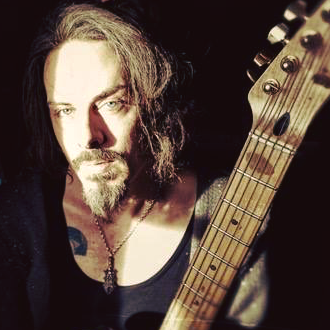

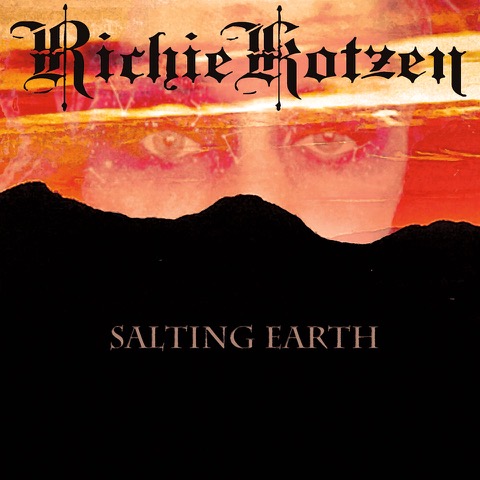

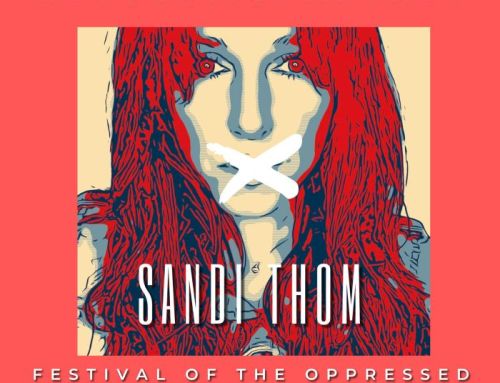
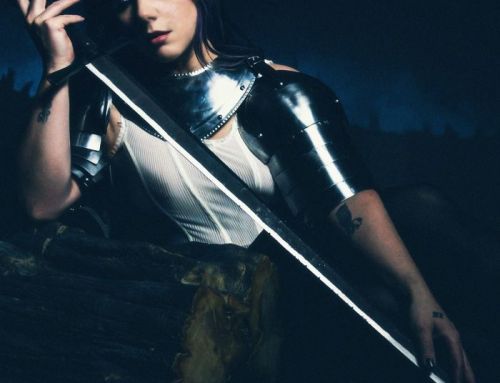
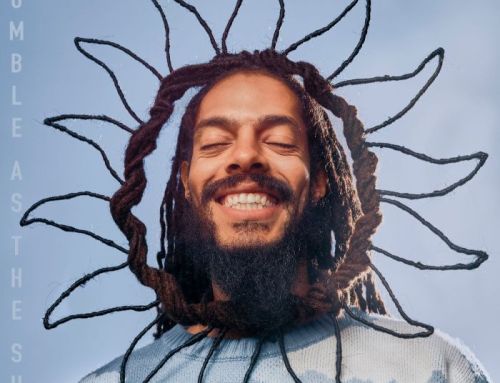
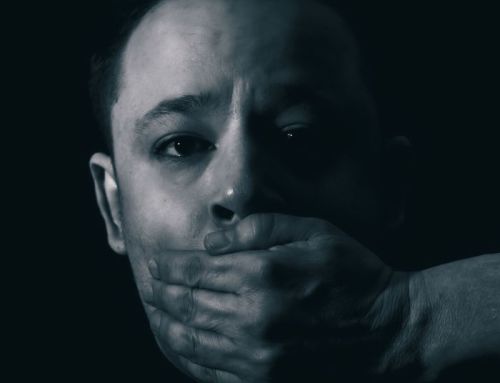
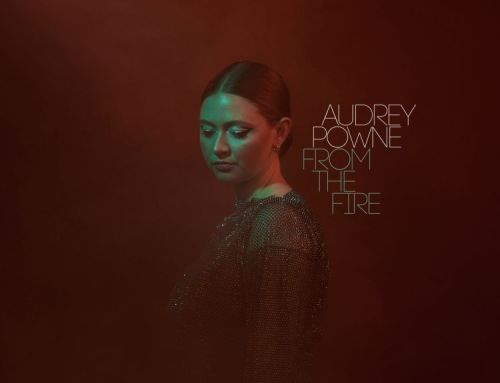
Leave A Comment